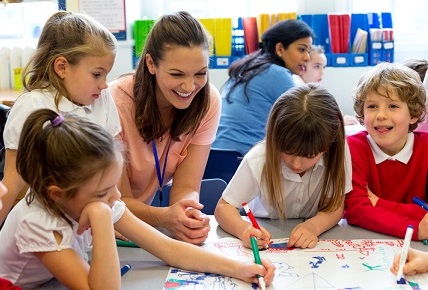
The start of Term 1 is always a busy time for teachers and principals, but the resources to help them navigate and cope with large workloads and stressful situations aren’t always readily available.
While professional associations do their part to help, it is often left to educators themselves to manage complex issues such as motivating disengaged students, deal with upset parents and make sure that the relationships with students aren’t too rocky.
Recently, several experts provided their advice on how educators can achieve this and start the 2020 school year strong.
Getting students motivated
Associate Professor Helen Askell-Williams from Flinders University is an expert on student wellbeing, mental health, and learners' knowledge about how learning works
She says that while people typically think of motivation as being personal interest, personal interest is only one type of motivation.
“Students can also be motivated by their perceived value of the topic to their future, by engaging presentations of the topic, by their peer’s engagement in the topic, and by their own achievement in the topic,” Professor Askell-Williams said.
"Particularly, achievement can be a strong motivator and stress reducer. Students can be supported to build achievement by setting short-term goals and small-step tasks to build their expertise and success”.
She said teachers and parents can discuss with students strategies for self-regulating their study such as planning long-term and short-term goals, using high quality learning strategies, and regularly checking back on what is working for them.
Improving student-teacher relationships
Harmonious student-teacher relationships are another way to start 2020 smoothly, but this is often easier said than done – particularly in the case of students with serious behavioural issues.
Dr Elizabeth Rouse from Deakin University is an expert on early childhood curriculum and pedagogy, and family/school/community partnerships.
Dr Rouse says social and emotional competence is important for children to successfully build relationships with the teacher, their peers and the school.
She points to research showing that "when children are beginning school, positive, effective and reciprocal relationships are crucial in supporting children to make the transition.
"A parent-teacher relationship which recognise parents as equal partners in supporting their children, and draws on parents' knowledge about their child, provides teachers with insights into the child as a learner in the classroom," Dr Rouse said.
"Social and emotional competence, rather than academic knowledge, is important for children to successfully build relationships with the teacher, their peers and the school, which are important to be a successful learner”.
Dr Rouse said creating continuity between home and school helps children to build their learner identity.
“When teachers are able to draw on the existing skills, knowledge and understanding children bring to the classroom as the starting point, they are able to connect with the child and engage them in the classroom,” she said.
Smoothing out the parent-teacher relationships
Together with teacher expertise, parents are an untapped source of knowledge and support, ready to be involved, says Dr Kobie Boshoff, an expert on the role parents play in advocating for the needs of children with autism spectrum disorder.
“At the start of the new school year, we are thinking of the anxiety and anticipation of our young children with the transition into a new school year,” Dr Boshoff, who works at the University of South Australia, said.
“This is especially relevant for children with special needs as these parents and children are likely to experience even more anxiety related to these new challenges”.
Dr Boshoff and her team consolidated published research, with the voices of 1662 parents of children with ASD. She said the results provided them with an “important reminder” for parents and school staff to partner together to ensure a successful learning journey for the child.
“Together with teacher expertise, parents are an untapped source of knowledge and support, ready to be involved,” she said.


